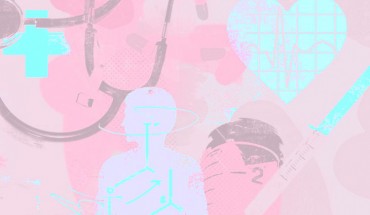Not so long ago, I found myself in the ‘swampy lowlands’ of general practice, a term devised by the philosopher, Donald Schon to describe those areas of professional practice uncharted by evidence and incapable of technical solution. I found myself sitting on a filthy sofa in a cluttered flat, listening to the tears of my distressed patient who needed me to help resolve an out-of-control situation. Whilst we sat, locked inside the flat, a member of the family howled outside. Whilst frightening (even with both mobiles pre-set to 999) it was also visceral and empowering and paradoxically considering the situation I was in, why my profession (general practice) was so special and sustaining. In those moments I could do what I was trained to do – use my knowledge of the family, in the context of their own environment to see what I could do to help. Like many GPs who have come before, including Dr John Berger, the author of The Fortunate Man, retelling his life as a doctor in the 1960s, I felt fortunate to be able to do my job at the cutting edge. It is a side of general practice that is gradually disappearing, killed off by targets, budget cuts, inspection and an obsession with science-based medicine over experience and caring.
Why I was locked inside rather than outside was not my doing (and I would never advise this) but finding myself there, ostensibly with a knife-wielding teenager I had to make a rapid appraisal and decision, stay or flee. I stayed. And in the staying did my job. What transpired over the next few minutes was that this young man was not the aggressor – instead, he was the victim of his own father’s disintegrating mental health. There was no knife. Instead, there was a flat piled high with rubbish; despite being a hot day, radiators on full setting producing a sauna-like and nauseating effect and the instant signs of poverty, deprivation and decay. What I had entered was a chaotic, messy, and recognizable problem – recognizable in terms of Schon’s swampy lowlands where to continue to quote him, I used the ‘soup of my knowledge’ to begin the process of transforming this family’s life. Without escalating the situation, I took steps to resolve it, sourcing help for the people who were in such severe need. It wasn’t easy and it isn’t finished yet, but it was the start to something better for that family. There was no instant solution, no magic pill – just the continuing relationship between myself, their GP and themselves, my patients to try to mobilise the help, support and services I could to help them. It required the home visit to make this appraisal – seeing patients just in the surgery rarely tells you what is really going on in their lives.
My experience is not unique. Millions of times a day, GPs up and down the country fall back on their ‘soup of knowledge’ (gut feelings based on the interaction of patient information and our knowledge and experience)1 as medical practitioners and treat families and patients in a holistic way. The Golden Age of being a GP may be over, but it would be a disaster if we ever stopped heading into the swampy lowlands of medical practice. This is where doctors can be the best they can be and do the most good.
- Beneath the White Coat - 2nd December 2020
- Coronavirus – Tips on coping with self isolation - 18th March 2020
- Medicine and Me – Your Mental Health - 12th March 2018








I read a few of Dr Gerada’s articles, passionately share her views and I am sure that I am not the only one. I only wish it would be the majority of professionals practising the “going that little further”